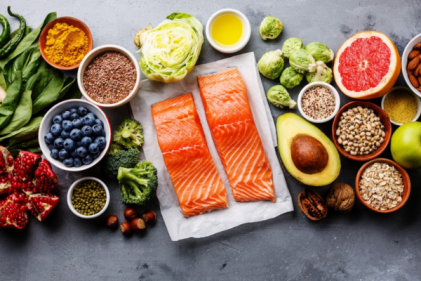 Endometriosis is a condition in which the lining of the womb implants and grows outside the womb itself. These implants can grow in the pelvis, fallopian tubes, ovaries, bowel and bladder. More uncommonly, they can also crop up in the lung, heart, eye, armpit or knee.
Endometriosis is a condition in which the lining of the womb implants and grows outside the womb itself. These implants can grow in the pelvis, fallopian tubes, ovaries, bowel and bladder. More uncommonly, they can also crop up in the lung, heart, eye, armpit or knee.
Wherever it grows, the womb lining responds to the natural hormone cycle and bleeds every time a period occurs. When women bleed normally, blood leaves the body through the vagina. However, in the case of endometriosis, the blood has no outlet and becomes trapped in the tissue, causing pain, inflammation, cysts and scar tissue. You may find blood in your stools or urine during your period, or experience pain in diverse areas of your body. It is even possible to experience nosebleeds during a period if endometrial patches occur in the nasal passages.
It’s a lot more common than you think, affecting up to 15% of all women and is more common in childless women over the age of 30. It is now believed that endometriosis is sensitive to oestrogen; therefore, women who have had more cycles, without a break for pregnancy, will have had more exposure to the female hormones.
So what can be done?
A multi-factorial approach is the quickest way to try and adjust the conditions that can possibly cause endometriosis, such as hormone imbalances, stress and nutritional deficiencies. Here are our top five tips for helping with the condition:
1. Cut out alcohol
Avoid alcohol completely for a couple of months, and then limit your intake to only one or two units a week. Your liver helps control the excretion of your hormones, and if you want it to work efficiently it is better not to have alcohol, which causes your liver to work overtime.
2. Increase good fats
Increase good fats, and reduce dairy produce and red meat. Dairy products and red meat contain a substance called ‘arachidonic acid’, which encourages the production of hormone-like substances called prostaglandins. These can cause swelling, pain and in some cases, thicken the blood itself. They can also trigger muscle contraction and constriction in the blood vessels, which can increase period pains, endometriosis-related cramps and the spread of endometrial tissue. Conversely, when you increase good fats, such as those contained in salmon, sardines, mackerel, trout, flaxseed and pumpkin seed, your body produces beneficial prostaglandins from essential fatty acids which help to reduce period pains. They also have an anti-inflammatory response which is particularly beneficial to endometriosis sufferers.
3. Increase B vitamins and magnesium
B vitamins are needed by the liver to convert excess oestrogen into weaker and less harmful forms. In addition, B6, in particular, has been shown to significantly reduce the intensity and duration of period pains that will help many sufferers. Good sources of B vitamins include egg yolks, fish, nuts, legumes, whole grains, avocado, carrots, soybeans and molasses. Magnesium also acts as a muscle relaxant and has been shown to have a beneficial effect on painful periods and lower back pain. It can be found in seafood, whole grains, dark green vegetables, nuts and molasses.
4. Exercise routinely
Exercise is highly beneficial for endometriosis sufferers as it can help to alleviate period pains by increasing circulation to the pelvic region. Exercise can also reduce stress, which can exacerbate the problem in some women. It also helps to control weight; oestrogen is stored in fat, so it is particularly important to maintain a healthy weight. Studies also show that women who are overweight generally have more oestrogen in circulation because fat is also an oestrogen-manufacturing plant. Finally, exercise releases brain chemicals called endorphins (the body’s natural painkillers) into the body and they also help us to feel happier, more alert and calmer.
5. Control excess oestrogen
One of the key ways to control excess oestrogen in your body is to avoid environmental oestrogens, also known as ‘xenoestrogens’. Researchers have found a connection between dioxins (a class of xenoestrogens from pesticides) and the development of endometriosis. Dioxins can be found almost everywhere, such as in the material used for tea bags and sanitary products. Use unbleached sanitary towels if you have endometriosis, and avoid tampons unless absolutely necessary. If you must use them, choose unbleached brands.
The symptoms of endometriosis can be exacerbated by a poor diet, excess weight, IBS, stress and hormonal issues. At our clinic, we systematically assess every aspect of our client’s diet and lifestyle to try and pinpoint relevant issues and, with the help of specific test results, come up with a plan of action to support our client and minimise the condition.
To make an appointment, contact us at Glenville Nutrition today on (01) 402 0777, or email info@glenvillenutrition.ie. We’re also on Facebook. Just search for Glenville Nutrition Ireland.








